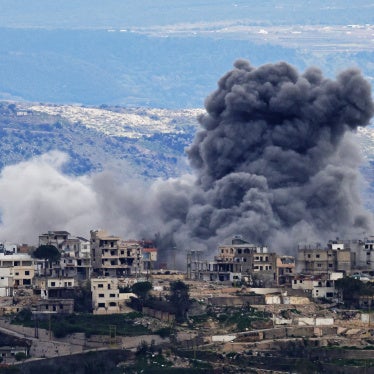With the stroke of a pen, the Inter-American Court of Human Rights, presided over by Diego García-Sayán, has jeopardized freedom of expression and respect for basic due-process guarantees. In a region where institutional weakness is the norm, this grave step backwards not only makes fundamental rights and liberties vulnerable, but also undermines the fight against corruption.
In a recent ruling – adopted by a narrow majority – the Court reversed extremely important precedents that it had defended for years.[1] The dissenting votes of three of the seven justices highlight a commitment to free speech that uckily still exists within the Court.
This unfortunate ruling came in the case of Mémoli v. Argentina, which concerns the criminal conviction of a journalist for reporting on irregular transactions involving public assets. In 1990, Pablo Mémoli, director of a newspaper in a small town of the province of Buenos Aires, published articles stating that a private company had sold public assets belonging to the municipality. As a result of this reporting, the justice system intervened, informing those affected that the contracts they had signed with the company were invalid, and allowing them to recuperate their money. Surprisingly, the judge that invalidated the contracts decided that the directors of the society had acted without knowledge that they were not allowed to sell public assets that did not belong to them.
Remarkably, the only ones charged as a result of these facts were those who reported the case. Mémoli was convicted for defamation and sentenced to five months in prison. His father, who was a member of the private society and had filed complaints before competent authorities, was convicted of defamation and sentenced to one month in prison. As if that were not enough, following the criminal convictions, a civil court opened an investigation against the Mémolis and has kept their assets seized for more than 16 years.
In 2008, the Inter-American Court decided (in the case of Kimel v. Argentina) that the crime of defamation in Argentina was incompatible with the American Convention of Human Rights. According to the Court, the definition of the crime was ambiguous and violated the principle of legality, which requires the criminalization of conduct to be defined in precise terms. In response to this decision, in 2009 Argentina decriminalized libel and slander when offensive expressions refer to matters of public interest.
The Court hearing this case should have required that the Mémolis – convicted of a crime that does not exist today in Argentina – benefit from the principle that requires the application of the law most favorable to the accused. However, without any reasonable explanation and contradicting its own jurisprudence, the Court reversed its course and validated the criminal conviction and all its effects.
The right to freedom of expression – a central aspect of this case – was redefined by the Court in terms that pale in comparison to its previous rulings.. For example, for this majority of justices, the mismanagement of public assets is not a matter of public interest. And, maybe even worse, the crime of opinion now has the blessing of the highest human rights court in the continent. The four justices did not even ask themselves if the complaints by the Mémolis were true, which according to the Court’s prior jurisprudence is enough to protect expressions that might be “offensive.” For the Court, there was no violation of freedom of expression in the criminal convictions and the journalist did not deserve protection.
Catalina Botero, Rapporteur for Freedom of Expression of the OAS, alleged at a hearing before the Court that the sentence of the Mémolis “has generated inhibition and judicial uncertainty” and argues that this affects “hundreds of journalists across the region that find themselves completely defenseless”. [2]
Fortunately – perhaps because it was not the subject of this litigation – the Inter-American jurisprudence that protects expressions criticizing public officials and the one that promotes decriminalizing defamation still stands.
It is very sad that the García-Sayán Court has thrown out jurisprudence that was constructed through the sacrifice of people who have dared to confront abuses by authorities and others involved in matters of public interest. On this continent, where intimidation of justices by the rich and powerful is all too common, the Court has undermined a basic human right principle that has been crucial in the fight against the abuse of power and corruption.







